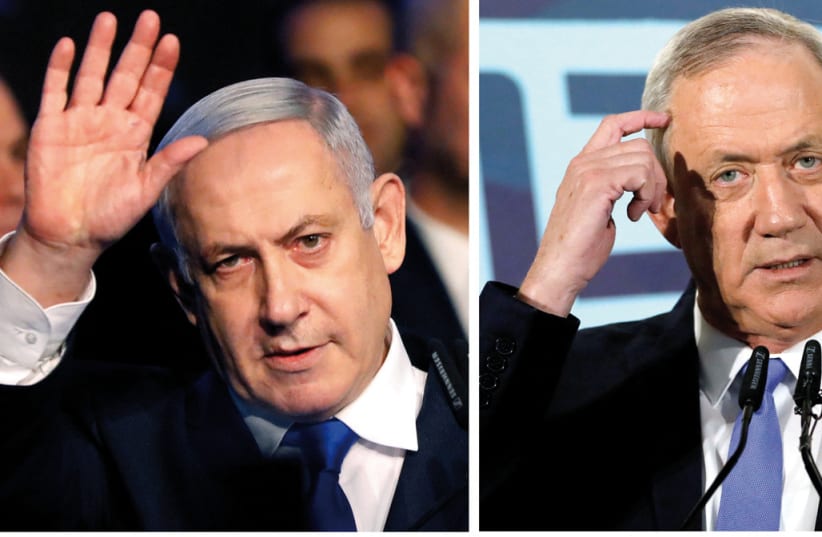When Benjamin Netanyahu returned to the Prime Minister's Office in 2009 after a decade-long hiatus, he hurried to complete the swearing-in ceremony of his government at 11:59 p.m. on March 31, because he did not want his government associated with April Fool's Day.
Similarly, what gave Netanyahu and Blue and White leader Benny Gantz the final push to finally sign a deal was not pressure from any virus, politician or demonstration but the desire to get the agreement signed moments before Holocaust Remembrance Day began. They would have felt too much shame had they waited any longer.
If only they had felt such shame 10 months earlier, perhaps Israel would have been spared two unnecessary elections and too many months of embarrassing, petty, political haggling.
Looking through the agreement, there is nothing there that could not have been signed in the immediate aftermath of the first election in April 2019.
Imagine if already back then, Netanyahu and Gantz would have expressed a willingness to compromise on behalf of the people of Israel. There could have been a functioning government in place to handle the coronavirus, money wasted on campaigns could have gone to the health care system and the most pro-Israel clauses in US President Donald Trump's peace plan could have been implemented before the US election went into high gear.
But Gantz was unwilling to break up the Blue and White alliance that became an alternative to Netanyahu's Likud, and Netanyahuwas unwilling to sign a document that would effectively end his political career.
The coronavirus finally persuaded Gantz to take the courageous step of defying the more experienced politicians in his cockpit. And navigating Israel through the virus enabled Netanyahu to have another accomplishment that he could declare his crowning achievement, in place of an attack on Iran that will never end up taking place. Gantz's reward is that if the agreement is completely implemented, he will become prime minister and replace Netanyahu – as so many in his political camp hoped to make happen but failed.
In a confusing contradiction in the agreement, the new government will be defined as an emergency government that will deal only with the coronavirus for six months, and then its policies can be renegotiated by more negotiating teams. But annexation in the West Bank can be implemented in less than two and a half months – as if such a groundbreaking move is not controversial in any way.
The agreement creates unnecessary ministries that will cost taxpayers astronomical amounts and enables both Netanyahu and Gantz to live for the next three years in fully-funded residences with an entire staff and all expenses paid by the state. Signing off on one of the most bloated governments in Israel's history, when more than a million Israelis are unemployed, reeks of indifference to the plight of so many citizens who are suffering, even if a fourth election would have been even more wasteful and insensitive.
It is no wonder that the long-awaited press conference of Netanyahu and Gantz as they signed the agreement never took place, because Holocaust Remembrance Day began. What was signed in shame was better off signed behind closed doors.
